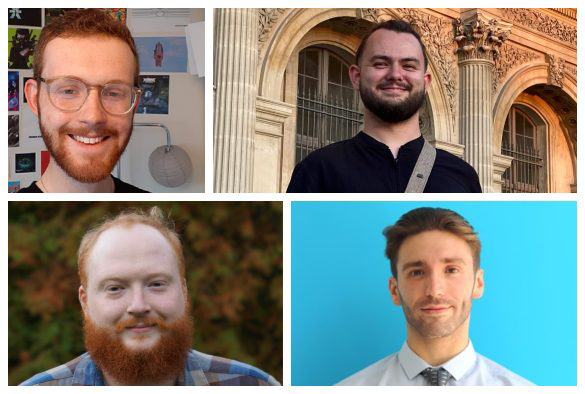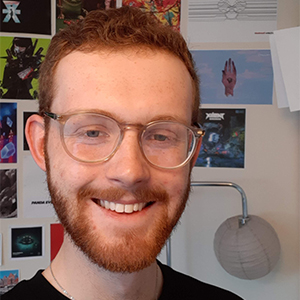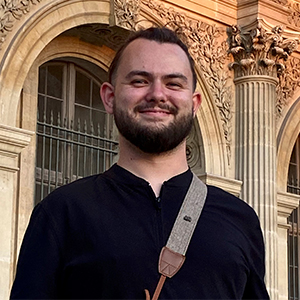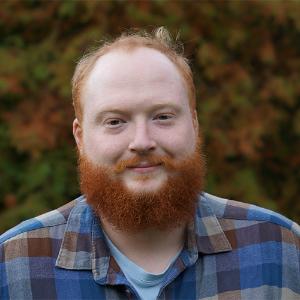New PhD students join our QUASAR Group - Part 2

The Cockcroft Institute is the UK’s largest educator of accelerator science and technology PhD students and offers exciting studentships in both physics and engineering. In addition to the four new students who joined our group within LIV.INNO, the QUASAR Group also welcomed PhD students Angus Jones, Connor Monaghan, Andrew Jones and Will Butcher.

Angus Jones
Angus graduated from the University of Liverpool with a Masters degree in Physics in July 2022.
His 3rd year project focused on a particle tracking simulation of muons in the CMS detector of the LHC. For his Masters project, he expanded upon a gap in literature regarding coherent synchrotron radiation (CSR) effects in the final focusing quadrupole magnets of particle colliders.
Angus’ research within the QUASAR Group focuses on the continued development and improvement of an optical fibre based beam loss monitor, with a view towards adapting the detector for other applications such as RF breakdown detection and prevention.

Connor Monaghan
Connor graduated from the University of Liverpool in 2021. His Master’s project was an application of machine learning techniques to the correction of particle trajectories inside different types of accelerators, specifically focusing a simulation of CLARA.
Connor’s project within the QUASAR Group will be researching the beam dynamics of PERLE, building my research on work from a previous PhD student in the group who had worked on injector design for PERLE.

Andrew Jones
Andrew graduated from the University of Liverpool in 2021. His MSc project focused on the performance of new scintillator detectors and shielding materials in mixed radiation applications. This project involved taking experimental data and validating it against MCNP simulations.
Andrew’s research within the QUASAR Group will focus on developing new instrumentation technology for use in such mixed radiation applications, specifically for use in molten salt reactors

William Butcher
Will graduated from the University of Leicester with a Masters Degree in Physics with a year in Industry in July 2022. His MPhys looked at whether upper tropospheric humidity (UTH) was accurately represented in climate reanalysis when compared with satellite climate data records (CDRs), specifically within El Niño-Southern Oscillation (ENSO) regions, in order to better inform future climate projections.
Will’s project within the QUASAR Group focuses on the design and commissioning of a supersonic gas jet-based beam profile monitor, for application in proton and hadron beam therapy used in cancer treatment.